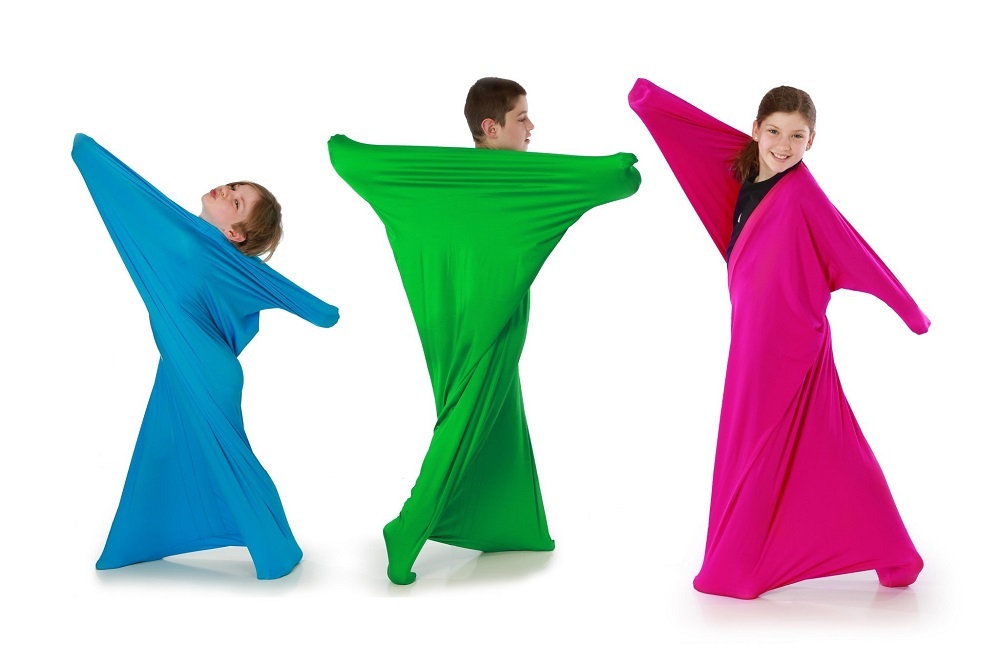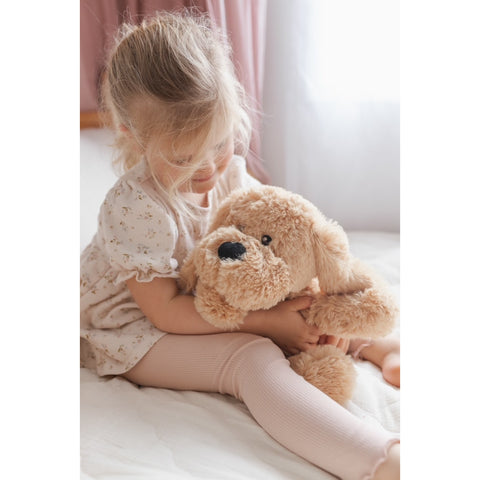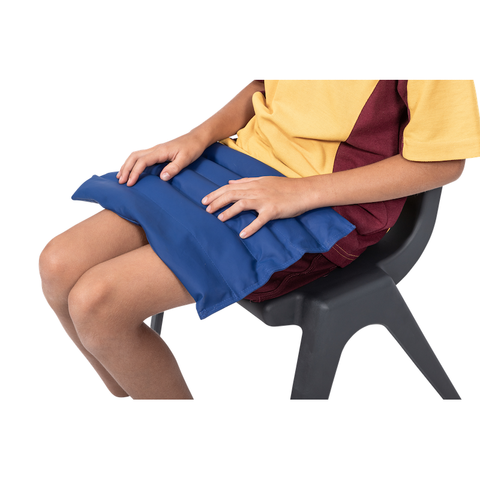Unveiling the science: How weighted Products benefit kids with ADHD and Individuals with Autism.
In the fast-paced modern world, the concept of calm can often seem elusive, particularly for children with ADHD and individuals on the autism spectrum. But did you know that there's a fascinating scientific explanation behind the soothing effects of weighted products? At The Sensory Specialist, we're excited to delve into the research that showcases why weighted items are an invaluable tool for calming down kids with ADHD and people with autism.
The Power of Compression:
Imagine the soothing sensation of a warm hug enveloping you – that's what our lycra body sock and sensory lycra tunnel aim to replicate. Scientifically known as "deep touch pressure," this type of sensation has been shown to stimulate the release of oxytocin and serotonin – neurotransmitters responsible for promoting feelings of happiness and relaxation.
The lycra body sock is like a cozy cocoon that offers gentle pressure to the body. It's a safe space where individuals can experience the benefits of compression while enjoying the freedom to move and explore their surroundings. Similarly, our compression tunnel provides a snug passage that not only supports sensory exploration but also encourages proprioceptive input – the body's awareness of its own movements. This input is known to enhance body awareness and coordination.

The Weighted Equation: A Neurological Symphony
It's not just the comforting embrace of a weighted blanket or the gentle pressure of a weighted toy that works wonders. There's a neurological symphony happening beneath the surface. When pressure is applied to the body through weighted items, a series of reactions occur in the nervous system that contribute to a calming effect.
For kids with ADHD, this calming mechanism can be especially beneficial. Research has shown that children with ADHD often have differences in their sensory processing and regulation systems. Weighted products, by virtue of their deep touch pressure, stimulate proprioceptive receptors in the skin. These receptors send signals to the brain, triggering the release of neurotransmitters like serotonin and dopamine. These "feel-good" chemicals are associated with mood stabilization and a sense of well-being.
Weighted items like blankets and plush toys are more than just cuddly companions; they are tools that offer a sense of security and relaxation. Our weighted blankets work by providing gentle, evenly distributed pressure over the body. This pressure acts as a calming agent, reducing anxiety and promoting better sleep. Studies have shown that deep touch pressure can lead to lower levels of cortisol – the stress hormone – and increased melatonin production, aiding in a more restful sleep.
And let's not forget about the adorable and huggable weighted Charlie Puppy! This lovable companion serves as both a comforting friend and a source of sensory input. Its strategically distributed weight provides the same soothing effects as the weighted blanket, offering a portable solution for relaxation wherever you go.

The Autism Connection: A Sensory Sanctuary
Individuals with autism often experience sensory sensitivities that can lead to heightened stress levels. The gentle pressure exerted by weighted products such as weighted lap pads, shoulder pads and blankets has been shown to help modulate sensory processing in the brain. A study published in the "Journal of Autism and Developmental Disorders" found that weighted vests significantly reduced sensory-related behaviors in children with autism. The pressure from the vests appeared to provide a calming influence, potentially by reducing the overwhelming sensory input that can lead to distress.
Furthermore, the tactile comfort provided by weighted products can serve as a grounding tool, helping individuals on the autism spectrum navigate the sensory-rich world around them. A study published in the "American Journal of Occupational Therapy" highlighted that weighted vests can enhance attention and reduce self-stimulatory behaviors in individuals with autism.
A Pathway to Calm: Weighted products empowering Kids and Individuals
Weighted products have the potential to be a game-changer for kids with ADHD and individuals with autism. The scientific evidence supports the idea that deep touch pressure from these items can help regulate emotions, reduce stress, and enhance focus.
Fostering Focus and Concentration: The Impact of Weighted Products in the Classroom
Weighted products, such as blankets and weighted lap pads have proven to be a dynamic ally in promoting focus and concentration within the classroom setting. The gentle pressure exerted by these products elicits a calming effect on the nervous system, helping to regulate sensory input and reduce anxiety. This, in turn, creates an optimal environment for enhanced attention and cognitive engagement. For individuals, especially children with attention difficulties or sensory sensitivities, the enveloping comfort of weighted items can serve as a grounding tool, enabling them to navigate classroom stimuli with greater ease. The science-backed benefits of weighted products make them a valuable addition to educational strategies that aim to foster productive learning experiences.

At The Sensory Specialist, we're dedicated to harnessing this scientific knowledge to create a range of products that promote calm and well-being. Our weighted blankets and toys, like the beloved weighted Charlie Puppy, are carefully designed to provide the right amount of pressure for a personalized sensory experience. These items aren't just accessories; they're tools that empower kids and individuals to find their own pathways to calm in a world that can sometimes feel overwhelming.
Note: While the scientific research supports the benefits of weighted products for individuals with ADHD and autism, it's advisable to consult with medical professionals or therapists to determine the most appropriate strategies for individual needs.
